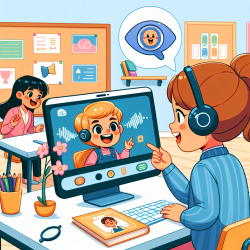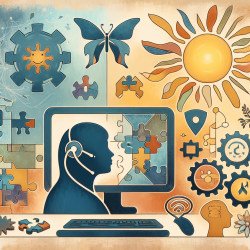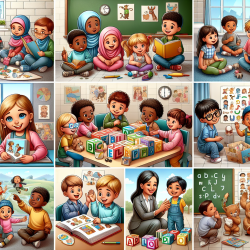As practitioners in the field of special education, we continuously strive to improve the lives of our students. Recent research published in Frontiers in Psychology sheds light on effective interventions for children who have experienced traumatic brain injuries (TBI). The study, titled "Effectiveness of training in expressing positive emotions, reacting to change and greeting peers after childhood traumatic brain injury: a single-case experimental study," provides valuable insights that can be translated into practical strategies for educators and therapists.
The study focused on three key behaviors often affected by TBI: expressing positive emotions, reacting to changes in plans, and greeting peers. Let's delve into each of these areas and explore how you can implement these findings in your practice.
1. Expressing Positive Emotions
One of the core findings of the study is the importance of helping children express positive emotions. The research showed that structured interventions could significantly improve a child's ability to recognize and express positive emotions. Here's how you can incorporate these strategies:
- Emotion Differentiation: Use visual aids and activities to help children differentiate between positive and negative emotions.
- Hypothetical Scenarios: Present hypothetical situations and ask children to identify and express the emotions they would feel.
- Personal Experience Sharing: Encourage children to share their personal experiences and the emotions they felt, offering them guidance on expressing these emotions appropriately.
2. Reacting to Changes in Plans
Flexibility and adaptability are crucial life skills. The study demonstrated that targeted interventions could help children better adapt to changes in plans. Consider the following approaches:
- Understanding Preferences: Teach children that others may have different preferences and that it's okay to adapt plans accordingly.
- Unexpected Changes: Use stories and real-life examples to explain that plans can change unexpectedly and that it's essential to react positively.
- Behavior Analysis: Analyze past reactions to changes and discuss alternative, more adaptive responses.
3. Greeting Peers
Social interactions play a significant role in a child's development. The study highlighted the effectiveness of interventions aimed at improving peer interactions. Implement these strategies to help children greet and interact with their peers:
- Social Rules: Teach basic social rules, such as greetings and farewells, through role-playing and interactive activities.
- Behavior Analysis: Use videos and stories to analyze characters' behaviors and discuss what could be improved.
- Real-Life Practice: Encourage children to practice greeting peers in real-life situations and provide positive reinforcement.
In conclusion, the research underscores the importance of targeted interventions in improving social cognition and adaptive behaviors in children with TBI. By incorporating these strategies into your practice, you can make a significant impact on your students' lives.
To read the original research paper, please follow this link: Effectiveness of training in expressing positive emotions, reacting to change and greeting peers after childhood traumatic brain injury: a single-case experimental study.










